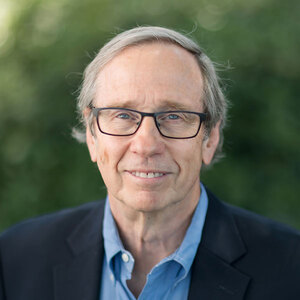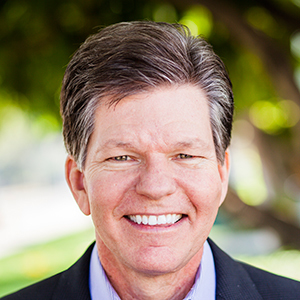Faith As Participation: An Exegetical Study of Some Key Pauline Texts
Wissenschaftliche Untersuchungen Zum Neuen Testament
Jeanette Hagen Pifer
ŌĆÖ00, M.A. ŌĆÖ11, Assistant Professor of New Testament
Mohr Siebeck, November 2018
In recent years, three particular debates have risen to the fore of Pauline Studies: the question of the center of Pauline theology, how to interpret the ŽĆ╬╣╠üŽāŽä╬╣Žé ╬¦Žü╬╣ŽāŽä╬┐Žģ═é formula, and the relationship between divine and human agency. In the present study, Jeanette Hagen Pifer contends that several of the apparent conundrums in recent Pauline scholarship turn out to derive from an inadequate understanding of what Paul means by faith. By first exploring the question of what Paul means by faith outside of the classic justification passages in Romans and Galatians, Pifer reveals faith as an active and productive mode of human existence.
Fearless Prayer: Why We Don't Ask and Why We Should
Craig J. Hazen
Professor of Christian Apologetics
Harvest House Publishers, August 2018
"If you remain in me and my words remain in you, ask whatever you wish, and it will be done for you" (John 15:7). You've likely scratched your head over this verse, wondering how literally to take it. Can you really ask for anything? If you think these words can't possibly mean what they say, Craig Hazen wants to reveal the astonishing reality of this promise. According to the Lord himself, "asking" is the center point of prayer. He wants us to bring our fruit-bearing requests to him boldly and with expectation for the blessing of his answer. He wants to hear our fearless prayer!
Embracing Contemplation: Reclaiming a Christian Spiritual Practice
John H. Coe
ŌĆÖ79, M.A. ŌĆÖ83, Director of the Institute of Spiritual Formation and Professor of Spiritual Theology
KYLE C. STROBEL
M.A. ŌĆÖ02, M.A. ŌĆÖ05, Associate Professor of Spiritual Theology
IVP Academic, February 2019
What does a Christian life lived "by the Spirit" look like? For many Christians throughout history, fulfilling Paul's command in Galatians 5:25 included a form of contemplation and prayer that leads to spiritual formation. But in large part, contemporary Christians ŌĆö perhaps especially evangelicals ŌĆö seem to have lost or forgotten about this treasure from their own tradition. The contributors draw on historical examples from the church ŌĆö including John Calvin, Richard Baxter, Jonathan Edwards and John Wesley ŌĆö to consider how contemplative prayer can shape Christian living today.
Theistic Evolution: A Scientific, Philosophical, and Theological Critique
J. P. Moreland, co-editor
Distinguished Professor of Philosophy
Crossway, November 2017
Many prominent Christians insist that the church must yield to con- temporary evolutionary theory and therefore modify traditional biblical ideas about the creation of life. They argue that God used ŌĆö albeit in an undetectable way ŌĆö evolutionary mechanisms to produce all forms of life. Featuring two dozen highly credentialed scientists, philosophers and theologians from Europe and North America, this volume contests this proposal, documenting evidential, logical and theological problems with theistic evolution ŌĆö making it the most comprehensive critique of theistic evolution yet produced.
 51┬▄└“
51┬▄└“







.jpg)